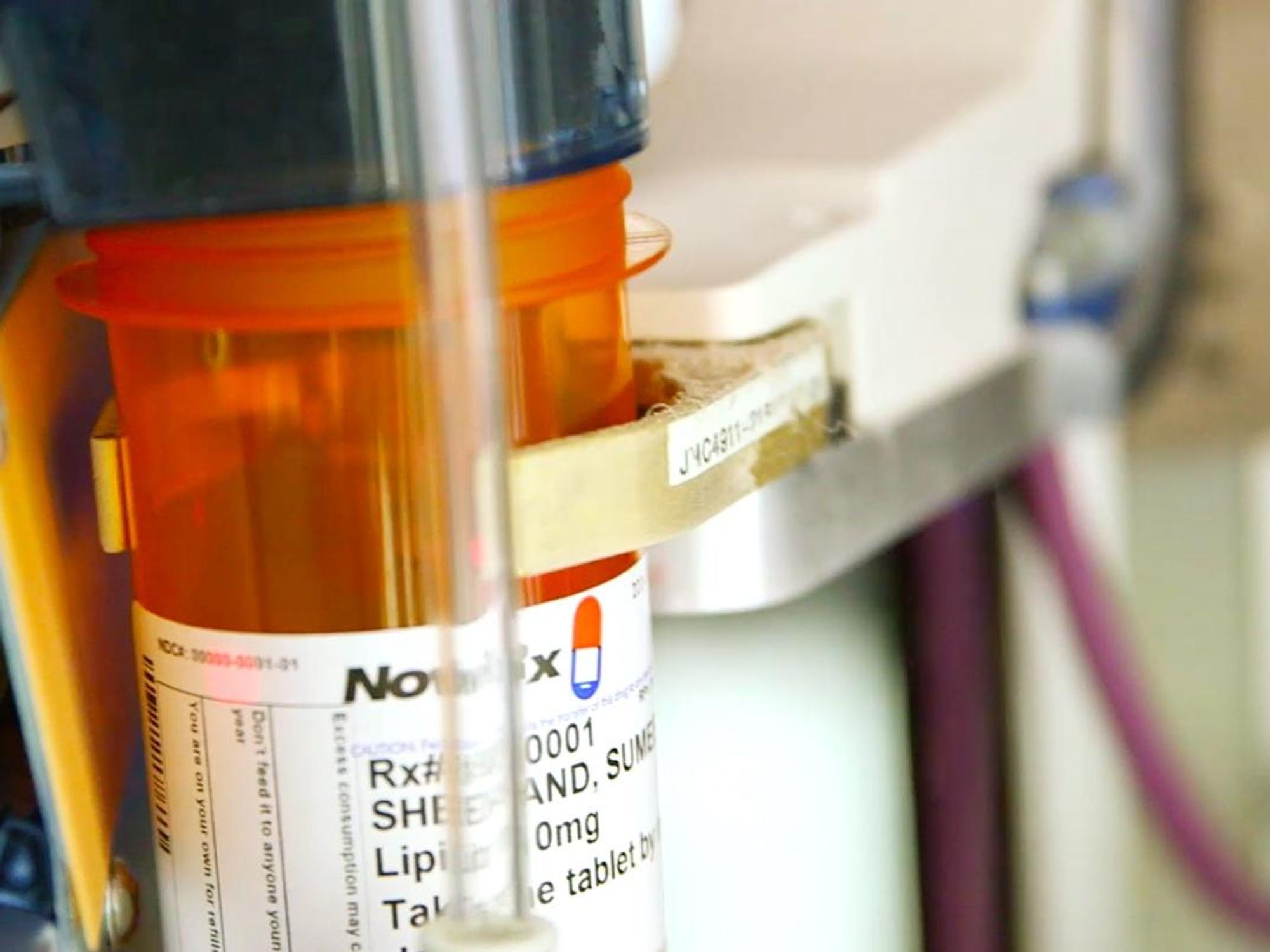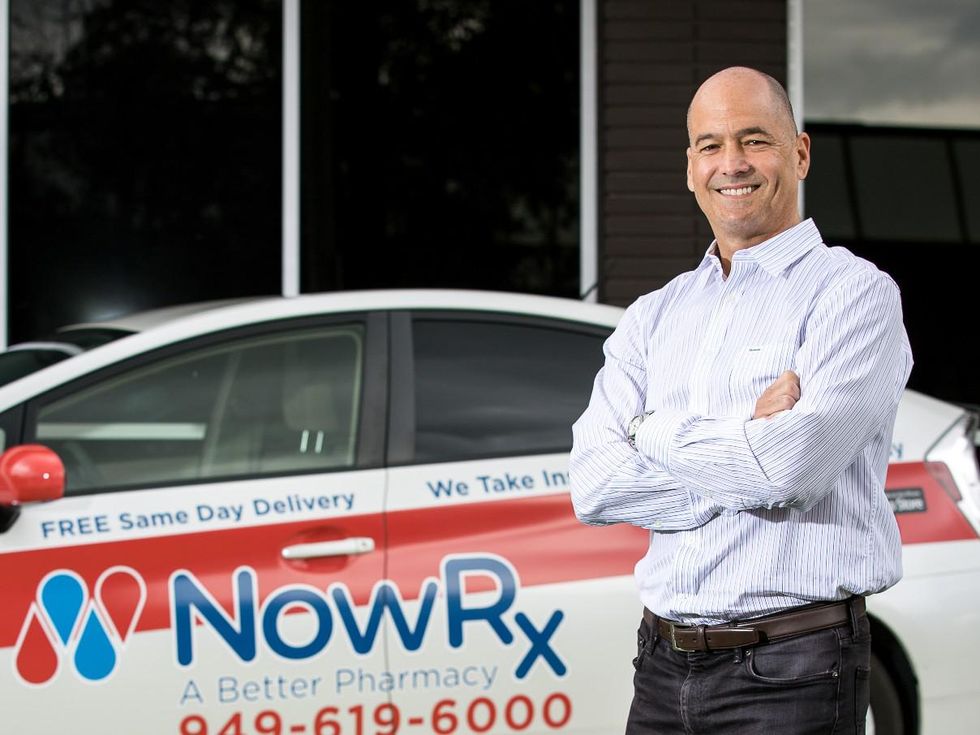NowRx Opens Same-Day Prescription Deliveries to LA Residents
Keerthi Vedantam is a bioscience reporter at dot.LA. She cut her teeth covering everything from cloud computing to 5G in San Francisco and Seattle. Before she covered tech, Keerthi reported on tribal lands and congressional policy in Washington, D.C. Connect with her on Twitter, Clubhouse (@keerthivedantam) or Signal at 408-470-0776.

San Fernando Valley residents can now get medications delivered to their door hours after getting a prescription.
California-based pharmacy startup NowRx announced it opened a new fulfillment center in Van Nuys to offer those in the area free, same-day delivery on prescriptions. The service uses robots and AI to fill prescriptions and commercial fulfillment space instead of retail space.
It follows a pandemic-fueled trend of home deliveries. Instacart, after struggling to turn a profit in 2019, did so for the first time during the pandemic. Amazon Pharmacy pushed into the drug-delivery space in November, two years after acquiring PillPack, and pharmacy delivery startup Medly Pharmacy raised $120 million during the pandemic, according to Pitchbook.
But the need for efficiencies in pharmacy came long before the pandemic — robotic pill-packers, home delivery, and e-prescribing have helped pharmacies keep costs down and provide faster service to more people. Most pharmacies often provide prescriptions at razor-thin margins (which is why independent pharmacies struggle and Walgreens counts on purchases of grocery items to offset the cost).
There are some benefits to this on the patient side as well. Most people live within five miles of a pharmacy, but the lack of access to public transportation or time to stand in line means some people delay getting their prescriptions, or forgo it altogether.
"A lot of people in our communities, they end up not getting their prescription in a timely manner," said NowRx CEO Cary Breese. "And that can lead to avoidable hospitalizations and other things."
The tech-enabled company can fill bottles within 30 seconds, and drivers can deliver prescriptions in a matter of two to three hours in some cities, including Los Angeles, Calabasas and Studio City.

But the process has some wondering if pharmacists' expertise is getting left behind — and, with it, patient safety — as they're now able to get medications with little or no interaction with medical experts.
"If pharmacy is just delivering a product, then boy, Amazon should take over," joked Steve Chen, associate dean of clinical affairs at the USC school of pharmacy.
But while some may think pharmacies are glorified fulfillment centers, the process of becoming a pharmacist is a long, arduous road that requires an undergraduate degree, and then four more years of graduate study to complete a doctorate in pharmacy.
It's not for nothing. Around 8,000 people die from medication errors every year, and caring for patients who deal with medication-related complications cost the health care system $40 billion annually, according to a February 2021 study in the academic research journal StatPearls. Many of those issues stem from bad handwriting, or unclear communication around how to take those drugs.
"Medication errors may be due to human errors, but it often results from a flawed system with inadequate backup to detect mistakes," researchers wrote.
Breese argues pharmacists at NowRx have more time to consult with patients since they aren't bogged down with the volume of fulfillment work.
"We feel like that, in the old traditional pharmacy model, that they actually are limited in how much time they can spend with patients."
NowRx allows people to contact their pharmacists through an app if they need consultation on drug doses or when to take their medication, and the company will soon be allowing in-app video calls. It's part of their larger venture into telehealth.
As startups like NowRx add digital marketplaces to their slew of services, Chen says innovation in the pharmacy industry should prioritize medication management services, such as identifying drug dosing issues or potential drug addictions.
"At the end of the day you can skip on drugs, you can try to limit the amount or the cost of drugs for the patients you're caring for," Chen said. "But if they're not getting the right medications for their disease states, and they're at risk for heart attacks, strokes, all these negative outcomes from uncontrolled chronic disease, that cost the health system a heck of a lot more money than the medications."
Keerthi Vedantam is a bioscience reporter at dot.LA. She cut her teeth covering everything from cloud computing to 5G in San Francisco and Seattle. Before she covered tech, Keerthi reported on tribal lands and congressional policy in Washington, D.C. Connect with her on Twitter, Clubhouse (@keerthivedantam) or Signal at 408-470-0776.



 Image Source: Skyryse
Image Source: Skyryse
 Image Source: Northwood Space
Image Source: Northwood Space